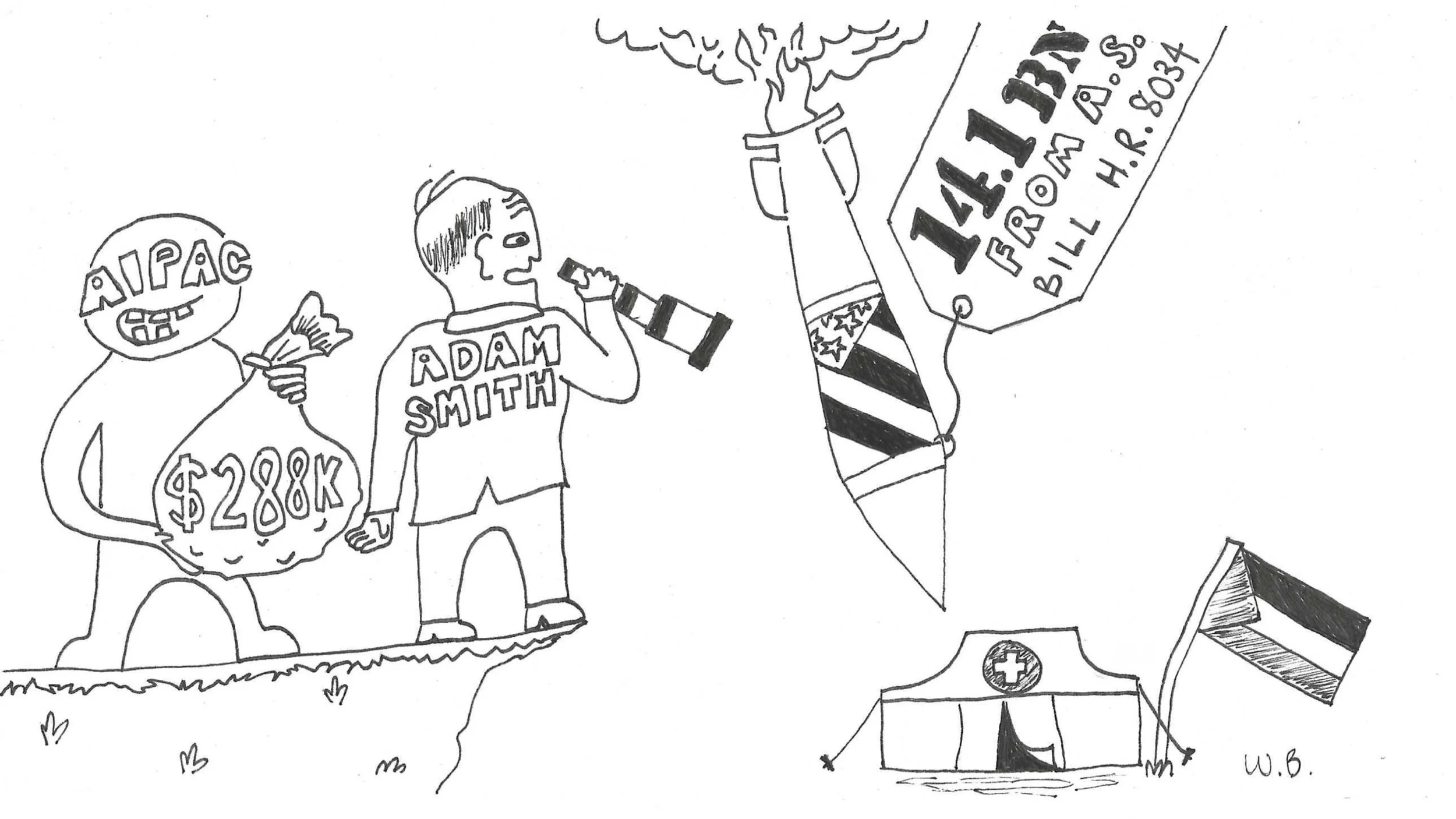“When the price is right: Adam Smith’s role in denying genocide." / Wesley Brown
Previous
Previous
Don’t Fear the Reaper in Blue Lights
Next
Next


Samuel (he/him) is an optimist who believes in the power of interlocution to foster a more informed community and speak truth to power. Art is not merely a commodity. He enjoys working on film projects with his brother Wesley like The Sam and Wes Internet Experience. He is an ever-learning actor who took lessons from Emmy Award-winning director John Jacobsen and trained at Seattle's Freehold Theatre. He is also a musician with multiple albums who plays the guitar, piano, violin and electric bass. Samuel received his B.A. in Philosophy with a Minor in Spanish from Western Washington University in December of 2022.